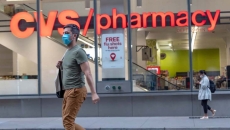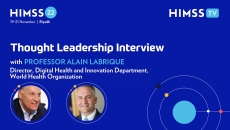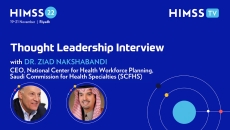Public Policy
Rapid RV/LV uses AI to calculate the ratio between the right and left ventricles, an indicator of pulmonary embolism severity.
Heather Meade, principal at Washington Council Ernst & Young, discusses the potential effects on digital health companies and patients following the end of the COVID-19 public health emergency.
According to the state authorities, the online birth control company billed Medi-Cal for services it didn't provide and dispensed female condoms to beneficiaries who didn't request them.
The deal is expected to close this year.
According to reporting by the Wall Street Journal, CVS is closing in on an agreement to acquire the primary care chain for $10.5 billion including debt.
The WHO’s Digital Health and Innovation Department director, professor Alain Labrique, explains the department's mandate and how member states can deploy investments to build strength into their healthcare systems.
Hospital leaders must focus on improving operations, building new revenue streams, and preventing regulatory risk, according to Nioura Ghazni, a partner in the corporate practice group of Sheppard Mullin’s San Francisco office.
The company offers a technology platform that aims to help primary care practices find gaps in care and manage the health of their patient populations.
National Center for Health Workforce Planning CEO Ziad Nakshabandi discusses the reskilling and upskilling of healthcare workers and how that effort aligns with the Kingdom's Vision 2030 objectives.
Robert Anderson, Jr., CEO of Cyber Defense Labs, on how healthcare organizations protect themselves against cyberattacks, federal technology resources, policy implications and the complexities of cyberinsurance.









